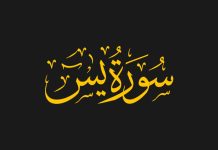Celebrated scriptwriter Anwar Maqsood in a recent interview shed light on the experience of working on hit comedy shows such as Aangan Terha and Fifty Fifty during the time of General Zia-ul-Haq, also sharing his disillusionment with the current state of comedy in Pakistan.
Maqsood explained that his experience of working on Fifty Fifty became unpleasant towards the end, citing a lack of credit for the show’s success. On how he felt disrespected by the younger actors on set, the playwright shared: “When the programme became a hit, and I shouldn’t say this, the children on the team who were fresh off the stage would suddenly become adults as soon as I’d walk into the room with the script. They all became hits. They’d have their shirt buttons open, would whip out a cigarette from the pack in their pockets and I’d ask me, ‘What have you got for us?’”
He went on to elaborate how his contribution to the show was not acknowledged, prompting him to leave.
“Then, Zia-ul-Haq Sahab called in the entire team for an award, except me, they all went, and I asked the general secretary of information while laughing why I wasn’t invited. He said, ‘Actually, writers don’t really have anything to do in comedy programmes, it’s all about the performance.’ I told him I couldn’t understand why I kept forgetting that there’s no place for writers in comedy, it’s all about actors. I apologised and left the show. Then I started Show Shaa, and I hired serious actors and had them do comedy.”
Anwar Maqsood’s greatest hits were released during the martial law era of General Zia, notoriously remembered for its strict censorship. Sharing how he often brushed those in charge the wrong way, the writer added, “I would often be disappointed in television. It was government-owned. One time, I had a sentence in Aangan Terha where Chaudhry Sahab says to Akbar, ‘Whoever knows how to speak English in Pakistan, he will never die hungry because he’ll get a job somewhere or the other.’ Akbar replies saying he knows English, following which Chaudhry Sahab asks him to translate, ‘Kya mein ja raha hun,’ to which he responds, ‘Army going.’ Chaudhry Sahab then says, ‘Not a chance. You live in a country like this. You’ll get me killed. There can’t be any English more wrong than this.’ That ended up going on air. It was Zia Sahab’s time.”
Reflecting on the drama industry in Pakistan, he shared, “Urdu literature doesn’t really have drama. We have a few, but strictly speaking, we can’t call them drama either. There are a few by Agha Hashar, there’s Anarkali by Taj Sahab, Khwaja Sahab’s dramas, but these dramas are such that if you’re watching them, on stage or on television, you enjoy them, but they don’t have a place in the library. We also don’t have much fiction in our literature. We had four to five people who’d write stories, who are all gone.”
Anwar blamed modern technology for the dearth of quality content, “New people aren’t coming in because these gadgets have taken away the love of reading and writing. People want everything from one single device. They don’t want to buy books.”
“No one is writing comedy anymore. Not one person. This is the case all over the world. You’ll find many serious writers, but not many who deal with comedy.”
Sharing that the road to comedy is paved with difficulties, he added: “You have to cross a river of fire to write comedy. It’s like walking on a sword, you can get cut in half any moment. If you’re writing about someone, and if you stop to wonder whether you should be writing something in particular or not, that’s where you should stop writing, that’s the beginning of destruction. The issue these days is that people start writing where they should have stopped.”
For him, media freedom does not suit a society like Pakistan’s, where a large part of the population is uneducated.
Elaborating on his views on media freedom and the television ratings, Anwar Maqsood asserted: “A lot of prominent journalists were upset with me when I said during a press conference with Pervez Musharraf Sahab, ‘You’ve given media freedom, but you should have done this once the country had a higher level of education. Around 70-80 percent of our population is uneducated. For them, media freedom is equivalent to destruction.’ There are so many stories on TV now that uneducated people watch and then want to emulate. They are just plays, treat them as such.”
Without naming any names, he said “there are so many plays that even I can’t watch. Ratings have ruined media freedom. The more shamelessness, pointless sentences and disrespect, the higher the rating.”









